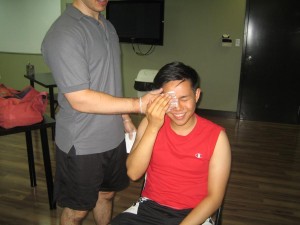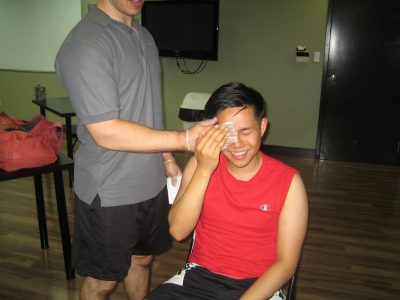Bungee jumping can be quite thrilling but there is a high risk for injuries. After a free fall, the bungee cord draws the individual back upward with abrupt and strong force. The combination of this excessive force and dangling from the cord can result to varying degrees of injuries to the spine, eyes and neck that can be severe enough to result to death.
Common injuries in bungee jumping
Eye injuries
Eye injuries are likely to occur in bungee jumping due to the high increase in pressure placed in the eyes. Once the elastic cord abruptly draws the individual upwards, it causes the fluid to flow to the head which results to high blood pressure within the blood vessels in the eyes.

The retina and conjunctiva are detrimentally affected by this increase in pressure. The eye injuries typically result to brief impairment of vision. Additionally, eye infection, eye spots and hemorrhage can also occur.
Spinal injuries
The excessive forces placed on the body is likely to occur as it is drawn back upwards by the bungee cord. This can damage the vertebrae of the spine and the spinal cord that it protects.
The spinal injuries from bungee jumping include compression fractures and herniated discs. Even though these injuries can be healed, it can be severe and permanent. If the spinal cord within the vertebrae is impaired, it can lead to paralysis and quadriplegia.
Neck injuries
The neck is at risk for injury during bungee jumping that can range from minor to severe. The force placed on this body part that links the brain to the spinal cord at the last phase of the jump is enough to stress the neck muscles and result to pain and brief decrease in the range of movement.
In some cases, the bungee cord might accidentally entangle the neck of the individual. Once this occurs, it cuts off the flow of blood amidst the heart and the brain or strangle the individual which makes him/her unable to breathe.
Death
Death can occur during bungee jumping. If the neck of the individual is entangled in the bungee cord for a few minutes, the brain is deprived of oxygen and the injury can be deadly.

